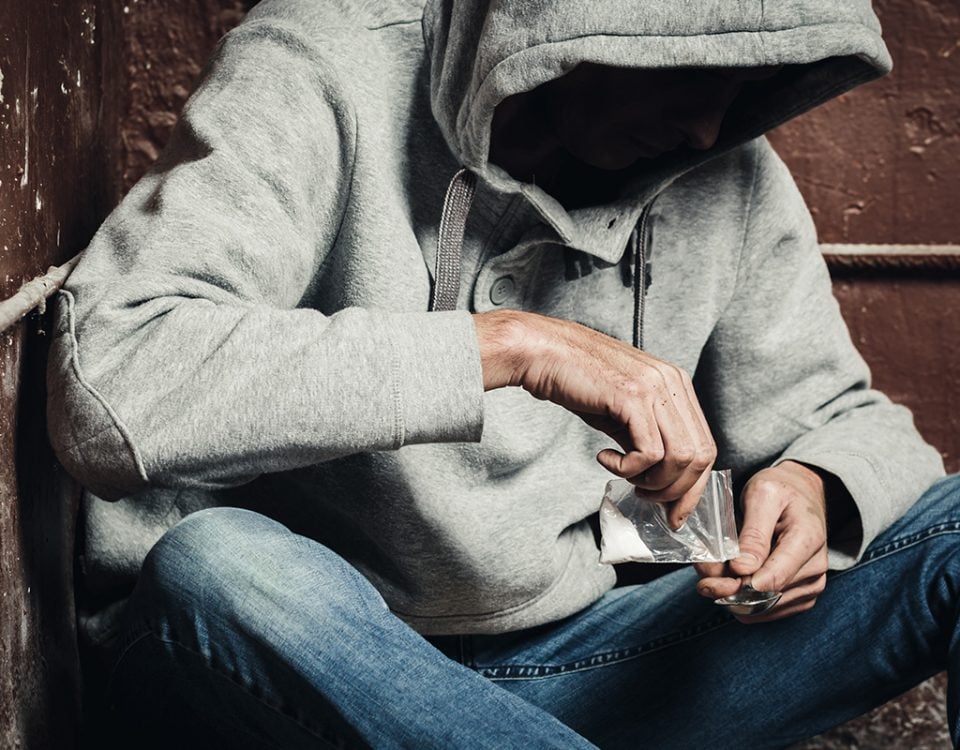Lortab is a medication used to treat moderate to severe pain. The two main ingredients in Lortab are acetaminophen and hydrocodone. While acetaminophen is a common over-the-counter pain relief medication called Tylenol, hydrocodone is an opioid, making it the most potent ingredient in Lortab. The composition of Lortab is like that of Vicodin, another hydrocodone-based medication that also has a high potential for abuse and overdose. Today we’ll be sharing more on Lortab overdose symptoms and what to do if you or someone you know experiences it.
Questions about our Facilities or Programs?
Our admissions coordinators are available 24/7 to answer any questions you may have as you consider whether treatment at Banyan is right for you or your loved one.
Can You Overdose On Hydrocodone (Lortab)?
Lortab functions like other opioid-based medications do. The hydrocodone in Lortab binds to opioid receptors in the brain and body to block pain signaling and produce relaxation and a sense of well-being. This binding also activates the release of dopamine and other neurotransmitters that play roles in pain and mood.
Due to hydrocodone’s impact on dopamine, Lortab can produce a sense of euphoria, especially when taken in higher doses. For this reason, Lortab and other opioid-containing drugs are highly addictive and often the source of drug abuse. While effective for treating pain when used as prescribed, Lortab carries the risk of addiction as well as overdose.
When Lortab abuse persists for a long time, eventually, their body and brain become tolerant to a dose, requiring them to take more of the drug to experience the same effects. While patients who are taking Lortab for pain should go to their doctor if the medication seems less effective, what happens instead is many of them take higher doses on their own.
As a result, physical dependence may occur, making quitting or reducing Lortab use difficult. With that said, a hydrocodone and acetaminophen overdose can occur if someone takes higher doses of Lortab than their body is used to or mixes it with other substances like alcohol, other opioids, or benzos.
In addition to taking more pills than they’re accustomed to, people who use Lortab in other ways also risk overdosing. For instance, some people might crush Lortab pills and dilute them in water to inject them intravenously, or they might snort the powder for an immediate high. These forms of administration release more of the drug throughout the body quicker than it’s meant to, which can overpower the user’s system and cause them to overdose.
Lortab Overdose Symptoms
As a combination pharmaceutical, Lortab also poses the risk of an acetaminophen overdose. Acetaminophen is a non-opioid analgesic that reduces fever and is available as an over-the-counter pain medication in most drug stores. In addition to the effects of hydrocodone overdose, too much acetaminophen can injure the liver, which can ultimately lead to liver failure.
Other common overdose symptoms of hydrocodone and acetaminophen (Lortab) include:
- Marked confusion, delirium, or acting drunk
- Nausea and frequent vomiting
- Pinpoint pupils
- Extreme sleepiness, or the inability to wake up
- Dizziness
- Drowsiness
- Fatigue
- Lightheadedness
- Low blood pressure
- Muscle twitching
- Seizures
- Spasms in the stomach and intestines
- Weak pulse
- Intermittent loss of consciousness
- Breathing problems, including slowed or irregular breathing
- Respiratory depression or arrest (stopped, shallow, and ineffective breathing)
- Cold and clammy skin
- Bluish skin around the lips or under the fingernails
- Unresponsiveness
Respiratory depression or depressed breathing is the most dangerous of all acetaminophen and hydrocodone overdose symptoms. Lack of oxygen to the brain can not only lead to permanent brain damage but also widespread organ failure, including heart and kidney impairment.
Death is a distinct risk of overdosing on hydrocodone-acetaminophen. While alcohol, sedatives, or other opioids are often involved in many opioid-related overdoses, opioid overdoses have occurred in people who accidentally took too much of their prescription medications. For this reason, be sure to only take your prescription medications as prescribed and speak to your doctor if you ever experience any issues with your medication.
Lortab Overdose Amount
Determining how much Lortab can cause overdose depends on the individual overdose amount of acetaminophen and hydrocodone. The recommended doses of hydrocodone are 10 to 40 mg within 12 hours, depending on the person’s tolerance. The hydrocodone overdose amount is believed to be 90 mg and higher, which is only 9 times stronger than the smallest recommended dose.
This number also doesn’t consider the form of administration. As we previously mentioned, crushing and snorting pills or diluting crushed Lortab can also quicken the rate at which it hits one’s system, making it more likely for the person to overdose with less hydrocodone. The overdose amount becomes even smaller when alcohol or other drugs are added to the mix.
On its own, acetaminophen’s overdose amount is 3,000 mg for adults in a day. Taking anything higher, like 7,000 mg in a day, can lead to overdose. However, when considering their combined effects, Lortab’s overdose amount ranges from 200 mg to anything higher than 325 mg. Again, this depends on the person’s tolerance and the dose they’re accustomed to taking.
While someone who’s used to taking 7.5 mg of Lortab can overdose after taking 20 mg, a person who’s used to taking 325 mg of Lortab may have a higher threshold, at which 400 mg or higher could lead to overdose. Considering this, be on the lookout for any signs of Lortab overdose in yourself or someone else who’s taking this medication.
If someone does overdose on Lortab, call 9-1-1 immediately. Medical professionals will be able to give the person medication that will alleviate symptoms long enough to give the person time to make it to the hospital and be stabilized.
Getting into treatment is easy with our free insurance verification
"*" indicates required fields
Help for Opioid Abuse & Addiction
Are you worried about your Lortab use? Is someone in your family struggling with opioid abuse? Do you know someone who’s addicted to drugs or alcohol? If so, help is available.
Our Texas rehabilitation center offers residential treatment for all kinds of disorders, including opioid-based medications like Lortab. Starting with medical detox to help patients recover from withdrawals without relapsing, our clients move on from detox to individual and group therapy sessions with our counselors. This is to determine the contributing factors of their disorders and how they can live a lifestyle that’s conducive to their sobriety.
To learn more about our various forms of drug addiction treatment in Texas, call Banyan Treatment Center today at 888-280-4763.
Related Reading:
How Long Does Hydrocodone Stay in Your System?
Hydrocodone and Alcohol: A Recipe for Disaster









